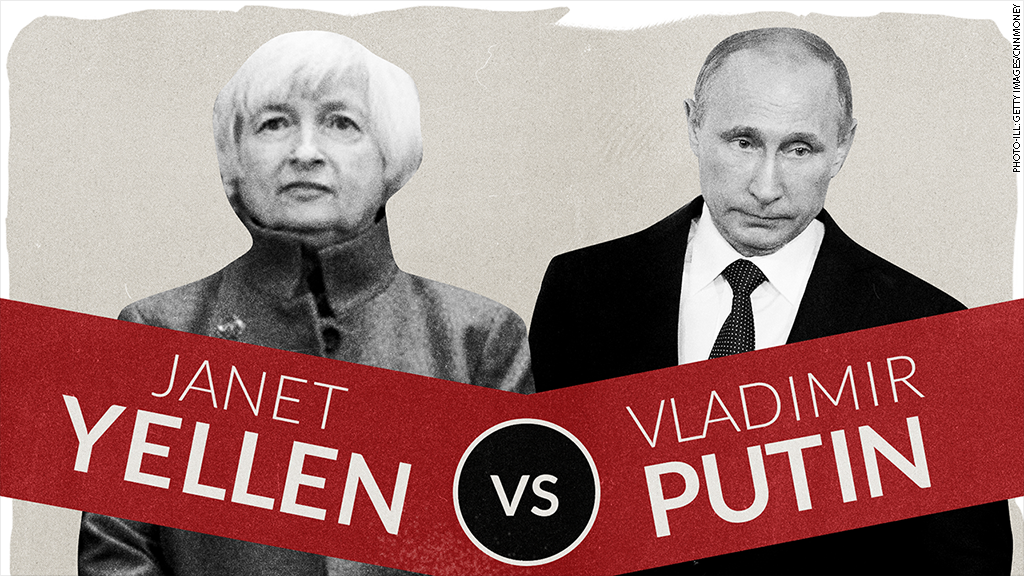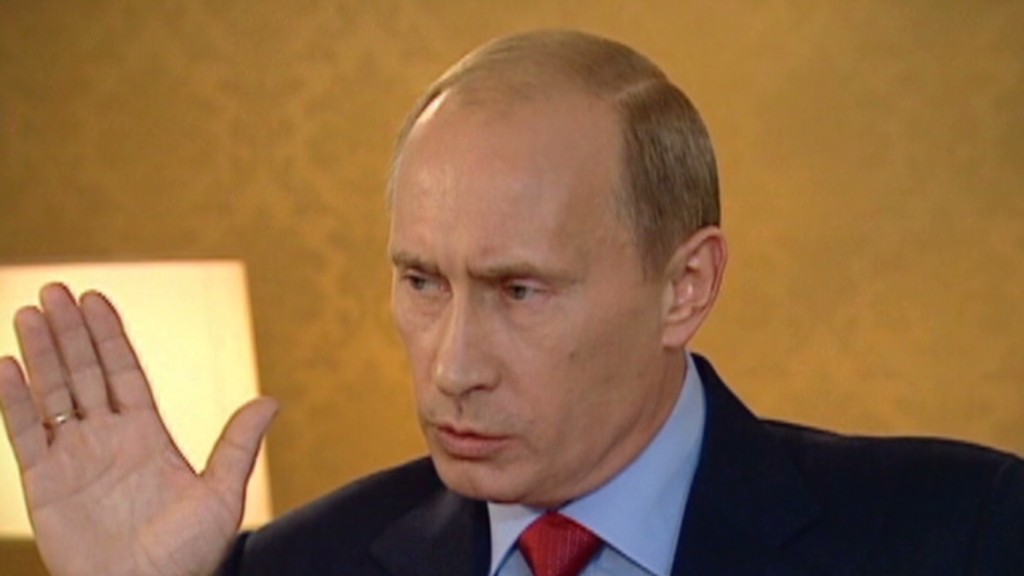
One is a soft spoken economic policy wonk, the other an ex-KGB operative who poses for photos shirtless on horseback.
Despite their differences, Federal Reserve chief Janet Yellen and Russian President Vladimir Putin are having big impacts on the stock market these days.
They're not technically in direct competition with each other, but Yellen's speeches and actions tend to move the market up -- or at least keep it steady -- while Putin's moves in Ukraine often spook investors.
Yellen staying the course: In one corner, there's Yellen, who keeps stressing that the U.S. central bank plans to keep interest rates at their historic lows for some time. The Fed's near-zero interest rate policy coupled with its massive stimulus program is widely credited with driving the bull market for the last five-plus years.
Related: Stock market bubble warnings grow louder
Though the stimulus is winding down, there's a perception among investors that Yellen doesn't want to spook the markets and therefore won't raise rates too early. While no exact date has been given, Fed-followers predict a rate bump in summer 2015.
Speaking Friday at a symposium in Jackson Hole, Wyoming, Yellen said the job market hasn't recovered, and that has led to speculation that the Fed will continue to support the economy until it does.
"The Fed is absolutely committed to not doing something stupid," said Brad McMillan, chief investment officer for the Commonwealth Financial Network. "The last thing they want to do is send the economy back into the great recession."
U.S. investors seem to be keeping the faith in Yellen, for now. Despite a pullback earlier this month, stocks roared back last week, with the S&P 500 hitting a record high on Thursday, and the Dow trading back above the 17,000 threshold.
Putin not backing down: On the other side of the "pond," the picture is more bleak. Investors worry that sanctions against Russia will hurt an already fragile European economy.
Related: Putin factor snuffs out European growth
Putin hasn't done much to allay those fears. On Friday, a U.S. defense official with direct knowledge of the latest information said Russia now has up to 18,000 "combat ready" troops on its border with Ukraine.
Also on Friday, Ukraine accused Russia of invading its borders with a convoy that was under the guise of a humanitarian aid mission.
Germany, Russia's largest trading partner, saw its main DAX stock index tumble this month due to concerns about the situation in Ukraine. The index has since recovered some of that lost ground, but McMillan believes the tension with Russia could have a noticeable impact on Europe's economy.
"This could reasonably be the blow that socks them back into a recession," he warned.

Don't discount the economy: Part of the reason Yellen and Putin are front and center on investors' minds is because the U.S. economy seems to be chugging along as a solid pace.
Related: 3 reasons stocks are still charging ahead
There have been decent job gains and robust corporate earnings. Even Yellen has said that if the economy improves faster than expected, or if inflation picks up significantly, the Fed may be compelled to hike interest rates sooner rather than later.
At the same time, many countries in Europe are still grappling with persistently slow growth, high unemployment, and anxiety about possible deflation.
So that means any breakdown in trade with Russia will sting.
Still, there's some hope that the European economy would be boosted by some sort of Fed-style stimulus from European Central Bank President Mario Draghi. If that happens, Draghi may ultimately be more important than Putin.


